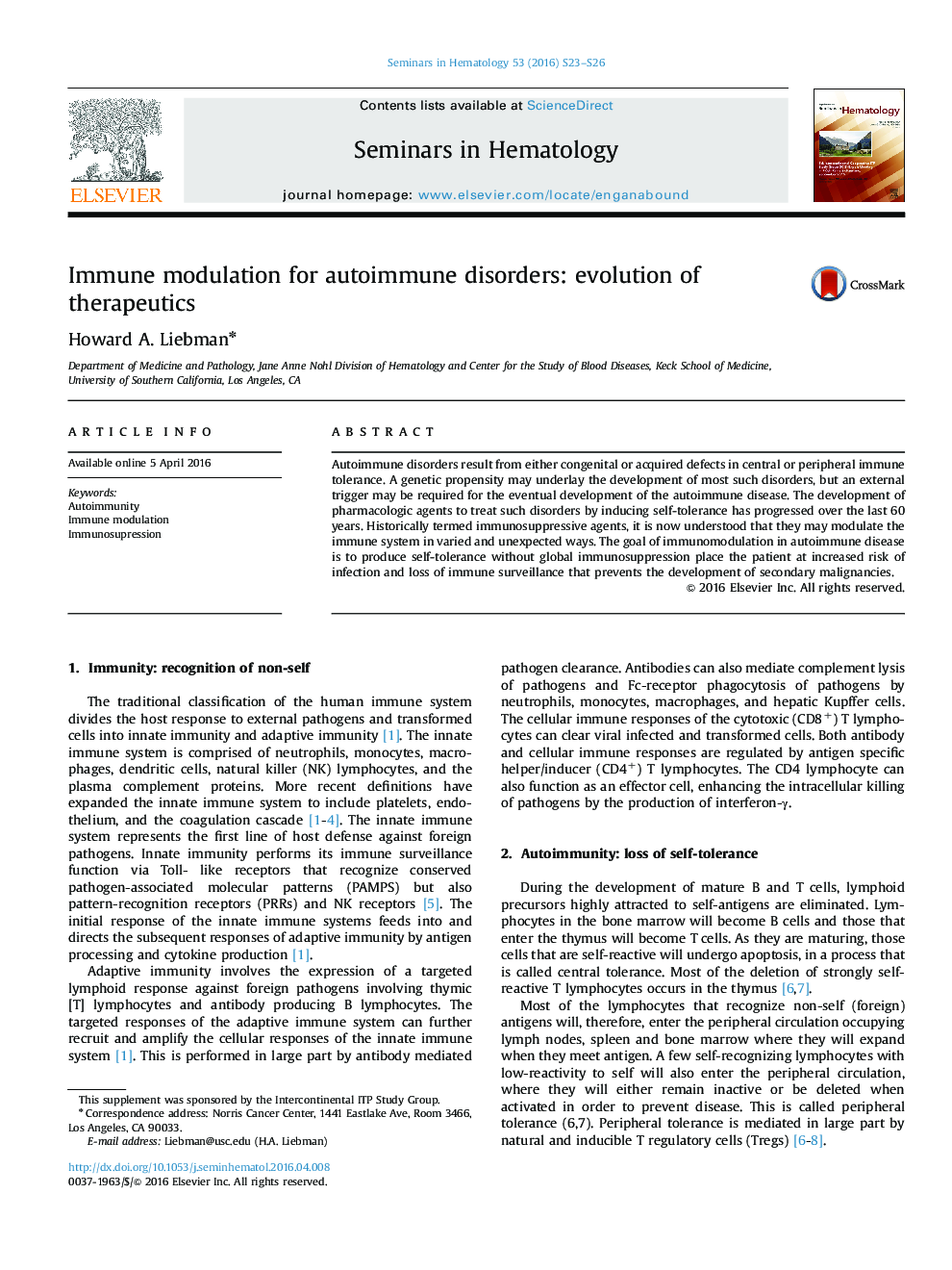| Article ID | Journal | Published Year | Pages | File Type |
|---|---|---|---|---|
| 3333420 | Seminars in Hematology | 2016 | 4 Pages |
Autoimmune disorders result from either congenital or acquired defects in central or peripheral immune tolerance. A genetic propensity may underlay the development of most such disorders, but an external trigger may be required for the eventual development of the autoimmune disease. The development of pharmacologic agents to treat such disorders by inducing self-tolerance has progressed over the last 60 years. Historically termed immunosuppressive agents, it is now understood that they may modulate the immune system in varied and unexpected ways. The goal of immunomodulation in autoimmune disease is to produce self-tolerance without global immunosuppression place the patient at increased risk of infection and loss of immune surveillance that prevents the development of secondary malignancies.
